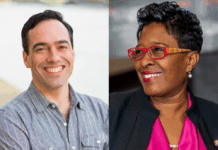
WASHINGTON (GA Recorder) — The federal trial in the case accusing former President Donald Trump of knowingly lying about the 2020 presidential election results and trying to overturn them will begin in March, a federal judge said Monday.
U.S. District Judge Tanya Chutkan, who waived Trump’s appearance for the first hearing, scheduled jury selection to begin March 4, despite protests from the former president’s attorney John Lauro that the date is “inconsistent with Trump’s right to due process.”
The trial would come amid an important date in the 2024 GOP presidential primary, where Trump remains the front-runner despite facing numerous criminal charges in multiple cases. March 5 is “Super Tuesday,” when 14 states hold nominating contests and the leader in the race typically establishes a near-insurmountable advantage.
The former president’s latest indictment was handed up Aug. 14 in Fulton County, Georgia, where state prosecutors allege 2020 election interference.
Lauro and co-counsel Todd Blanche requested the federal trial against Trump not begin until January 2026 so that they could review the 12.8 million pages of discovery provided by U.S. prosecutors.
“It’s a sacred obligation to represent a defendant, and it’s not easy when you have the entire government amassed against you,” Lauro said, his voice growing louder.
“Let’s take the temperature down,” Chutkan said. “Mr. Trump has considerable resources that not every defendant usually has.”
“Discovery in 2023 is not sitting in a warehouse looking at documents,” Chutkan continued. “It’s reviewed by electronic searches.”
Federal prosecutors maintain the evidence was given in a searchable database, and that much of the information has already been available to the defense — including publicly available court documents, material housed by the National Archives and Records Administration, and Trump’s own social media posts.
Molly Gaston, an assistant U.S. attorney, told Chutkan that a list of approximately 47,000 duplicative key documents has already been presented to the defense.
“Here’s what we view as the most important: It’s all in a very organized fashion,” she said, referring to the list.
Chutkan called the government’s digital production of the documents a “considerable” effort.
“This case is not going to trial in 2026,” she said.
“You’ve known this was coming,” she told Lauro. “No experienced counsel would have been sitting on their hands waiting for an indictment.”
RELATED: Mark Meadows, Fulton DA square off over his bid to move trial
Defense: A ‘complex’ case needs time
Among the arguments that Trump’s legal team will not receive adequate time to review the volume of discovery, Lauro told Chutkan that the defense is facing “one of the most unique cases ever brought in the United States.”
“We’re going to be busy with very, very complex issues,” Lauro said in response to Chutkan’s questioning about why Trump’s legal team requested more time.
Aspects of the case may be of “historic note,” Chutkan argued, “but they are not legal ones.” The scope of events unfolded over a few months, she added.
Lauro said the court can expect a “very, very unique and extensive motion that deals with executive immunity” or that a U.S. president cannot be subject to federal criminal charges.
Other forthcoming motions from the defense will question whether the U.S. District Court for the District of Columbia has jurisdiction over the case, possible violations of the First Amendment, and whether Trump is being selectively prosecuted for alleged political reasons, Lauro said.
Federal prosecutors said they expected the motions to be rejected.
“Selective prosecution (arguments are) not new in this district,” Gaston said in response. “First Amendment issues in the context of fraud (are) not a new legal issue, and that won’t be complex either.”
The public interest deserves a “prompt jury consideration,” Gaston argued.
“We need to proceed to trial … because on a near daily basis the defendant posts on social media about this case,” she said.
When Chutkan asked for a timeline of the defense’s planned motions, Lauro said they “anticipate filing as quickly as possible.”
Lauro said his team will file against each criminal charge as well as a motion to dismiss the case because of “political persecution,” which he suggested may require an additional hearing.
Charges against Trump
A federal grand jury handed up an indictment against the former president in early August on four counts: conspiracy to defraud the United States; conspiracy to obstruct an official proceeding; obstruction of, and attempt to obstruct, an official proceeding; and conspiracy against rights.
The 45-page indictment says that despite knowing his statements were false, then-President Trump worked with co-conspirators to produce fake electors and repeatedly claimed that he won the presidency, eventually leading to the violent attack on the U.S. Capitol on Jan. 6, 2021.
Trump, 77, appeared at the E. Barrett Prettyman Federal Courthouse in Washington for his arraignment Aug. 3 before U.S. Magistrate Judge Moxila A. Upadhyaya.






